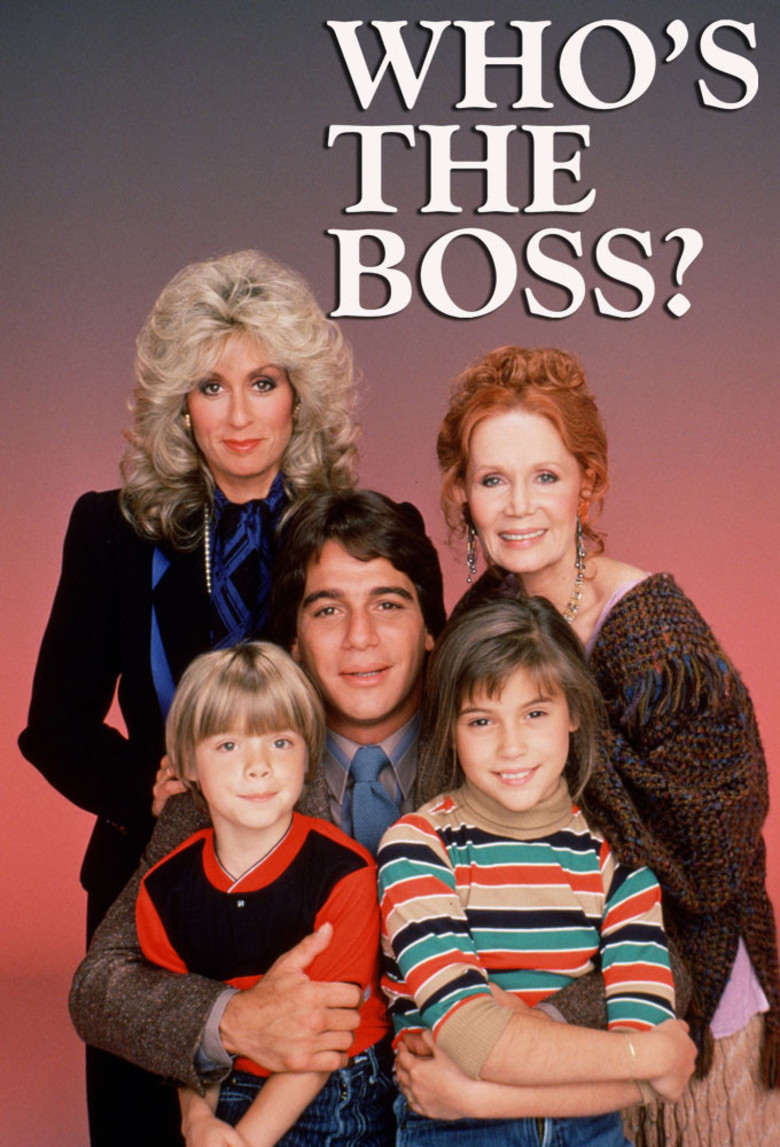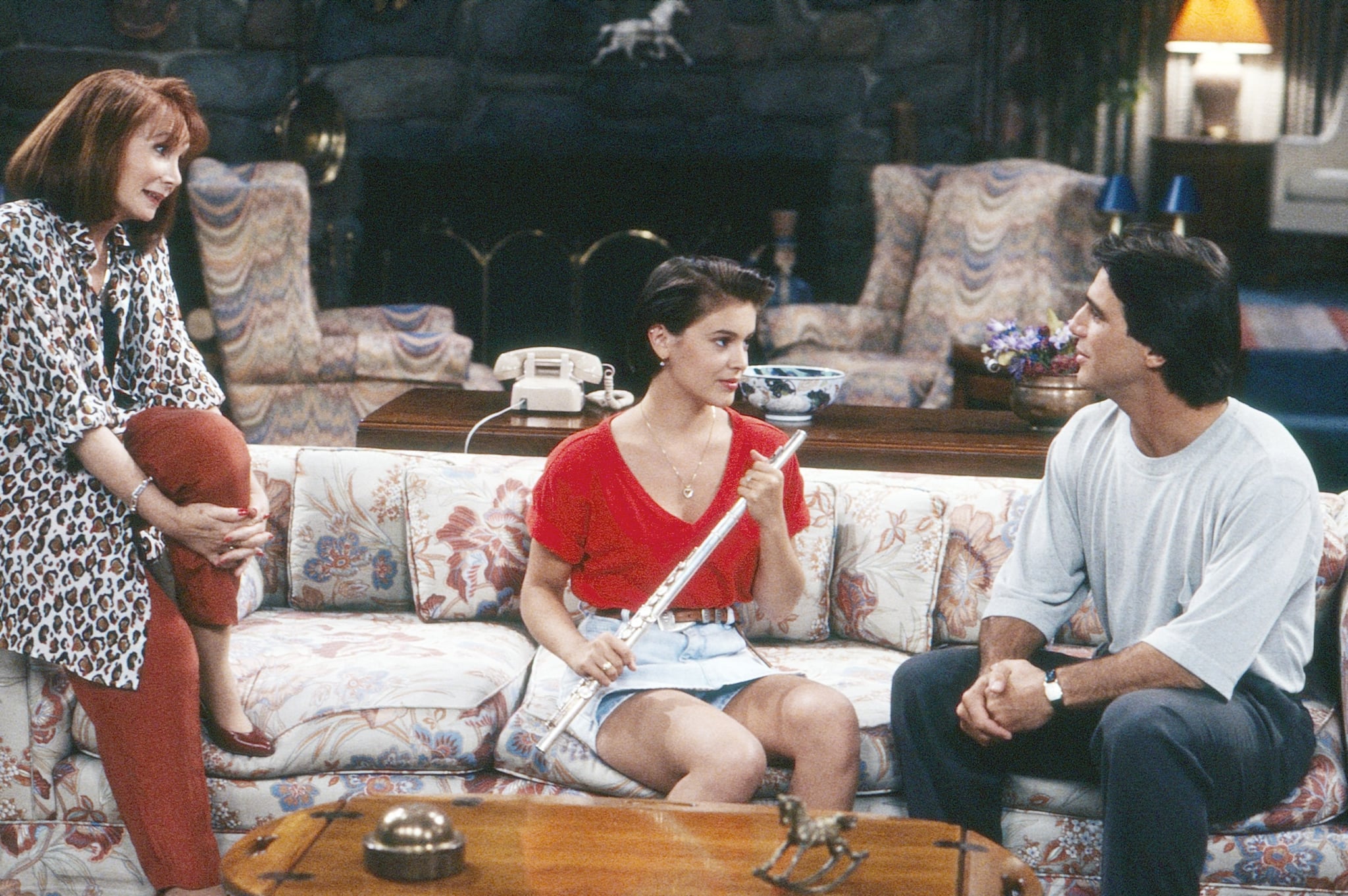Who’s the Boss? Then and Now: A Have a look at the Enduring Legacy of a Eighties Sitcom
Associated Articles: Who’s the Boss? Then and Now: A Have a look at the Enduring Legacy of a Eighties Sitcom
Introduction
With nice pleasure, we are going to discover the intriguing subject associated to Who’s the Boss? Then and Now: A Have a look at the Enduring Legacy of a Eighties Sitcom. Let’s weave fascinating info and provide contemporary views to the readers.
Desk of Content material
Who’s the Boss? Then and Now: A Have a look at the Enduring Legacy of a Eighties Sitcom

"Who’s the Boss?" wasn’t only a sitcom; it was a cultural phenomenon. Premiering in 1984 and operating for eight seasons, the present captured the hearts of audiences with its witty writing, relatable characters, and a surprisingly progressive tackle gender roles for its time. Whereas the panorama of tv has dramatically shifted since its ultimate episode aired in 1992, "Who’s the Boss?" continues to resonate with viewers, discovering new audiences on streaming platforms and proving its enduring enchantment. This text will delve into the present’s success, inspecting its characters, themes, and lasting affect on tv and well-liked tradition.
A Recent Tackle Household Dynamics:
The premise of "Who’s the Boss?" was easy but revolutionary for its period. Tony Micelli, a captivating Italian-American former baseball participant, works as a live-in housekeeper for Angela Bower, a powerful, impartial, and career-driven promoting government. Their unconventional dwelling association, with Tony elevating Angela’s daughter, Samantha, kinds the core of the present’s comedic conflicts and heartwarming moments. This setup instantly challenged conventional gender roles. Tony, a person comfy with domesticity, subverted expectations of masculinity, whereas Angela, a profitable girl, defied the picture of the stay-at-home mom.
The present cleverly used this dynamic to discover points of sophistication, gender, and household in a humorous but insightful approach. Tony’s working-class background contrasted sharply with Angela’s upper-middle-class life-style, resulting in amusing cultural clashes and misunderstandings. Their relationship, initially outlined by their employer-employee dynamic, advanced right into a deep friendship and mutual respect, difficult the patriarchal norms prevalent in lots of sitcoms of the time.
The Unforgettable Characters:
The success of "Who’s the Boss?" was largely attributable to its well-developed and memorable characters. Tony Micelli, performed by Tony Danza, was the center of the present. His allure, wit, and inherent goodness made him immediately likable. His struggles to stability his profession aspirations along with his obligations as a father determine supplied a relatable and endearing side to his character.
Angela Bower, performed by Judith Mild, was equally charming. She was a strong girl navigating a difficult profession and single motherhood. Angela’s energy and independence, coupled along with her vulnerability and occasional insecurities, made her a fancy and compelling character. Her relationship with Tony was not only a skilled one; it was a testomony to the ability of friendship and mutual assist, a refreshing depiction of a platonic relationship between a person and a girl on tv.
Samantha Micelli, performed by Alyssa Milano, supplied the youthful vitality and perspective. Her journey from a precocious little one to a younger girl navigating adolescence was a major a part of the present’s narrative arc. Her relationship along with her mom and Tony’s affect on her life supplied a sensible portrayal of household dynamics and the complexities of rising up.
The supporting characters have been equally essential to the present’s success. Mona Robinson, Angela’s eccentric and infrequently meddling mom, supplied a supply of fixed comedic reduction. Jonathan Bower, Angela’s son, supplied a unique perspective on household life and contributed to the present’s total comedic timing. The recurring characters, akin to Tony’s mother and father and buddies, added depth and richness to the present’s narrative.
Themes and Social Commentary:
Past its comedic components, "Who’s the Boss?" subtly addressed a number of social points related to the Eighties. The present tackled matters akin to gender roles, class variations, and the challenges of single parenthood with shocking nuance and sensitivity. The sturdy feminine lead, Angela, challenged the everyday portrayal of girls in sitcoms, presenting a profitable and impartial girl who was not outlined solely by her relationships with males.
The present additionally explored the complexities of intergenerational relationships, showcasing the bond between Tony and Samantha, and the evolving relationship between Angela and her mom. These relationships highlighted the significance of household, assist, and understanding, even within the face of disagreements and differing views. The present’s humor typically stemmed from the conflict of cultures and generations, offering a relatable and insightful commentary on the altering social panorama.
The Present’s Enduring Legacy:
Whereas "Who’s the Boss?" ended its run in 1992, its legacy continues to at the present time. The present’s reruns stay well-liked on numerous streaming platforms, introducing it to new generations of viewers. Its characters, themes, and humor have stood the take a look at of time, proving its enduring enchantment. The present’s affect on tv is plain. It paved the way in which for extra nuanced and complicated portrayals of household dynamics and gender roles in sitcoms. Its success demonstrated the potential for comedic storytelling to deal with social points with humor and sensitivity.
The present’s enduring reputation additionally factors to a deeper cultural resonance. Its characters’ struggles and triumphs are relatable throughout generations. The themes of household, friendship, and overcoming challenges proceed to resonate with audiences, making "Who’s the Boss?" greater than only a nostalgic sitcom; it is a timeless story about human connection and the enduring energy of household.
A Fashionable Perspective:
Whereas "Who’s the Boss?" was progressive for its time, viewing it by means of a contemporary lens reveals some limitations. Some features of the present’s humor is likely to be thought-about outdated and even insensitive by right this moment’s requirements. Nonetheless, it is vital to know the present inside its historic context. The present’s strengths lie in its relatable characters, its witty writing, and its surprisingly insightful exploration of social points. Its legacy just isn’t solely in its leisure worth but additionally in its contribution to the evolution of tv and its portrayal of advanced household dynamics.
In conclusion, "Who’s the Boss?" stays a major piece of tv historical past. Its enduring reputation is a testomony to its well-developed characters, its witty writing, and its surprisingly progressive strategy to social points. Whereas some features could seem dated right this moment, the present’s total message of household, friendship, and overcoming challenges continues to resonate with audiences, guaranteeing its place as a beloved basic of the Eighties and past. The query "Who’s the Boss?" stays unanswered in essentially the most pleasant approach attainable, showcasing a dynamic of equality and mutual respect that continues to encourage viewers a long time later.








Closure
Thus, we hope this text has supplied precious insights into Who’s the Boss? Then and Now: A Have a look at the Enduring Legacy of a Eighties Sitcom. We hope you discover this text informative and helpful. See you in our subsequent article!

